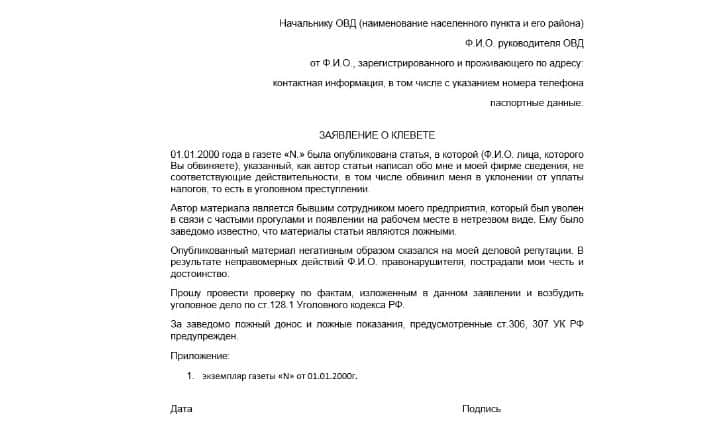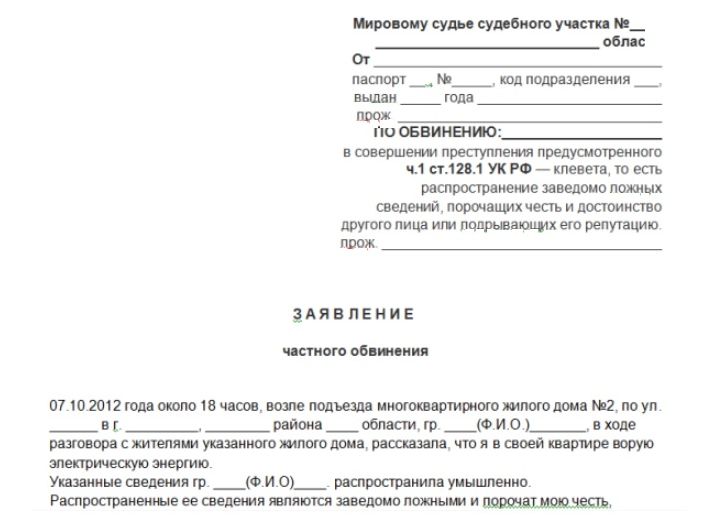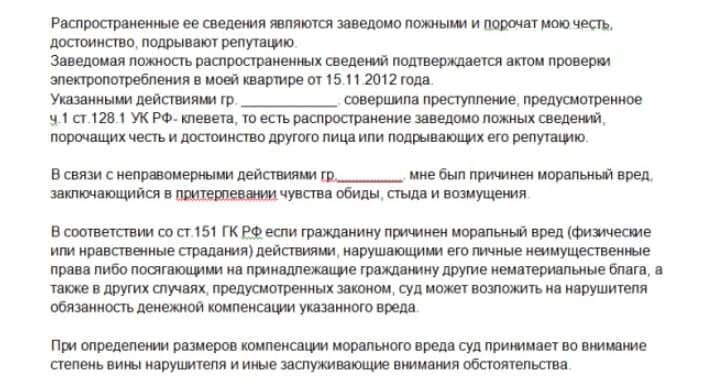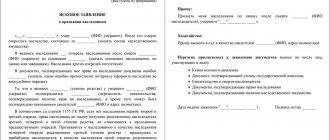Crime against the honor and dignity of a citizen
| Line of crime | Decoding |
| An object | Social relations that develop in connection with the implementation of an individual’s right to honor and dignity |
| Subject | A sane person who has reached the age of 16 |
| Objective side | Dissemination of information discrediting reputations |
| Subjective | Intentionality of the act |
| Compound | Publication of knowingly false data |
Attention: an article on the protection of honor and dignity is also present in the Civil Code of the Russian Federation (152). The Supreme Court of the Russian Federation gave clarifications regarding the deciphering of slanderous statements. Thus, in the text of the Resolution of the RF Armed Forces, the dissemination of defamatory information is understood as:
- publication thereof in the media;
- broadcast via radio and television channels;
- inclusion: in video products, including those distributed on the Internet;
- in official documents;
- in reports;
- in speeches;
- in statements to official authorities;
The RF Armed Forces also explained the essence of the defamatory information. These are false information:
- that the victim committed an offense;
- about his unethical or illegal behavior;
- about dishonesty of actions;
- about business dishonesty;
- other.
Important: if slander is communicated only to the victim, then it cannot be considered criminal.
What is libel in the Criminal Code of the Russian Federation?
Criminal law recognizes as libel any dissemination by a person of knowingly untrue information that negatively affects the honor, dignity and reputation of another citizen. According to paragraph 7 of the Resolution of the Plenum of the Supreme Court of the Russian Federation No. 3 “On judicial practice in cases of protecting the honor and dignity of citizens,” the following is recognized as distribution:
- publication of false information in print, television, radio and online media;
- dissemination of information by any other means of television and radio communications;
- voicing information in speeches to an unlimited number of people;
- indication of information in published memos and certificates;
- indication of such information in applications to officials;
- communication of such information to at least one person whom it does not concern.
The communication of such information to anyone is not considered libel if the distributor ensured that it was not disseminated to an unlimited number of persons. Any information that did not exist in reality at the moment designated by the slanderer can be considered untrue. The following statements are considered defamatory:
- about a person’s violation of the law;
- about committing a negative act;
- about unworthy behavior contrary to ethics;
- about dishonest attitude towards the fulfillment of professional, official or other obligations, towards entrepreneurship;
- about non-compliance with the rules of business ethics and turnover and other facts.
Provided that they negatively affect the honor, dignity and business reputation of individuals and legal entities.
Note!
Value judgments and beliefs of another person, which are a clear expression of his subjective opinion, position and views, should be distinguished from slander.
What can you complain about?
Not every case of dissemination of false information can become a basis for filing a complaint. The law clearly outlines the list of ways in which such information should be disseminated. In particular, a complaint for libel can be filed provided that the data became known to the general public through:
- information message on television or radio;
- The media and the Internet where the material was published;
- demonstrations on television;
- an oral message communicated by one person to another person;
- placement of information in a public report, characterization or statement addressed to a certain circle of citizens or an official.
At the same time, a violation can be classified under a more “severe” article if there are such aggravating circumstances:
- when a person took advantage of his status or official position to spread slander;
- the general public has become aware of a serious illness that is dangerous to others;
- the subject of public discussions was information about the commission of a serious criminal act by a person, which does not have official confirmation;
- dissemination was made in the form of public expression (for example, through the use of a literary work, report, etc.).
Attention! The statute of limitations for disseminating libel in the media is 1 year.
What is libel: legal framework
The concept of slander is spelled out in Article 128 of the Criminal Code of the Russian Federation. Slander is the dissemination by any means of information, knowingly false, that discredits the honor and dignity of another person, and undermines his reputation. Deliberately false information is a lie, and the one who disseminates this information initially knows that it is false.
The law establishes whether it is possible to write a statement for libel and under what conditions this is done:
- a slanderer aged 16 years or older is brought to justice;
- the article for libel is applicable only to individuals;
- When a slanderer deliberately slanders, he knows that he is spreading lies about another person, and does this with the aim of harming him (his reputation).
The culprit will be prosecuted for libel if he spread it in one of the following ways:
- on radio or television;
- published in the media or on the Internet;
- shown in a TV show and other sources;
- told at least one person;
- slander is reflected in public reports, characteristics, statements that are addressed to an official or a group of people.
These conditions are classified as aggravating circumstances:
- libel in public expression (mass media, reports, speeches, literary works);
- the victim was reported as having committed a criminal offense (grave, especially grave, sexual in nature);
- use of official position to spread slander;
- if the victim was spoken of as a spreader of a dangerous disease that threatens others.
Slandered at work, what to do
A person who has suffered from defamatory statements needs to begin his defense by analyzing the situation. It is necessary to determine ways to implement the right to protect reputation. There are several of them. However, each is associated with solving the following problems:
- Collection of evidence: unreliability of widespread information;
- intentional publication of false information;
- the fact of data transfer to at least one person.
- the criminal obtaining secret information (for example, about an existing diagnosis);
Hint: the criminal should be prosecuted by law if the victim herself did not provoke him to spread false information.
Example 1. N. wrote a statement to the police against M., who mentioned his name in a report on the level of economic development of the region. The information was negative. In particular, they talked about solving business issues with the help of bribes. M. explained to law enforcement officers that he received the information from N. himself in a private conversation. In addition, he provided an audio recording of the conversation. The initiation of criminal proceedings to protect reputation was refused.
The victim has the following options for further action:
- contact the police to report a crime;
- file a civil claim in the magistrate's court.
Moreover, you can use both options at the same time. It should be remembered that there is a statute of limitations in this case. It is equal to two years.
Criminal liability for the dissemination of false information is established in Article 128.1 of the Criminal Code. Within the framework of the legislation, there is only one set of officials, separately protected from slander. This includes jurors, prosecutors, investigators, persons conducting inquiries, and bailiffs (Article 287 of the Criminal Code). Thus, other officials can defend themselves only on a general basis.
Hint: a worker can seek help from a representative body if it has been established at the enterprise.
For example, to a trade union organization. Perhaps this method will save you from litigation and restore your reputation. Article 128.1 does not provide for criminal prosecution of legal entities. The official is responsible for disseminating information discrediting an employee. A person can apply for it on a general basis (the procedure is described above). However, in some cases you will have to take into account the following nuances:
- If a personnel decision is made based on false data, it is subject to cancellation.
- In court, the victim can use the materials of the police investigation to prove his case.
- The employer is obliged to compensate the worker for material damage: unpaid bonus amounts;
- funds lost due to dismissal;
- money spent on experts and other things (determined by the court).
Example 2. Secretary K. was dismissed at the initiative of the employer. The reason was gossip that she was in a close relationship with the director of the company R. The owner of the company - R.'s wife - ordered the director to pay K. The girl went to the police. As a result of the investigation, it turned out that the author and distributor of gossip was the director's driver. Court sentenced:
- cancel the order to dismiss the employee;
- reinstate K. at work;
- pay the girl money in the amount of the average daily earnings for the period of forced absence;
- The driver was given fines and compensation for moral damages.
We suggest you familiarize yourself with: Sample complaint to the fire inspectorate against neighbors Tip
: you must demand from the employer copies of orders signed on the basis of slanderous data:
- about reduction or non-payment of bonuses and others.
Gossip at the place of duty can also cause serious trouble. It should be borne in mind that the dissemination of defamatory data among colleagues is recognized as a criminal act provided that it is known to be unreliable. The reasons for the slanderer may be different:
- providing the manager with false information to: impose disciplinary sanctions on the worker;
- layoffs;
Hint: often the slanderer’s goal is material.
Employees receive their salaries from a single fund. If it is small, then the villain can deliberately slander his colleagues in order to receive a larger bonus. The algorithm for the victim’s actions is as follows:
- Contact your manager in writing to hold the liar accountable. You should rely on the norms of the code of business ethics.
- Write a statement to the police.
- Submit a civil claim to the Magistrates' Court.
It is necessary to keep in mind the following subtleties in the fight against slanderers:
- Any recipient of the application will have to conduct a thorough check of all the circumstances of the case. Secret information will be revealed and made available to employees.
- The victim should gather as much detailed information as possible about the crime. Particular attention should be paid to proving the unreliability of widely spread information.
Attention: if a liar accuses an employee of committing a crime, then his punishment under Article 128.1 of the Criminal Code will be more severe.
How to write a statement correctly
A victim of slanderous attacks can seek help from the police or prosecutor's office. The rules for filing an application with these authorities are slightly different.
The following algorithm should be followed:
- When contacting the police station, the details of the territorial unit must be indicated. Information about the manager (full name, position and title) should be written in the header of the document.
- A complaint about slander to the prosecutor's service is accompanied by an indication of the body registering the statement.
- The police office issues a special coupon confirming the citizen’s application. It can be used to form an evidence base when filing a lawsuit.
- The receipt of a complaint by the prosecutor's office is certified by a special stamp indicating the date and person in charge. Such a mark is placed on a copy of the written statement that remains with the victim.
Tips for writing an application correctly.
Standard samples of documents are located on information boards or in the office of law enforcement agencies. If you need it you can here.
Document structure and sample
The legislative framework has not yet developed an official form for complaining about defamation to the police. Therefore, an injured citizen who discovers the fact of slanderous attacks against him can write a statement in any form.
When registering, you must adhere to the following rules:
- the introductory part contains the name of the territorial unit of the law enforcement agency and information about its head;
- First there is information about the applicant, including full name, place of residence and registration;
- the main part of the document contains a description of the established facts of slander and methods of its dissemination;
- the application indicates the person suspected of the offense, with a request to hold him accountable, his personal data and actual address of residence are indicated;
- The registration is completed with the date and signature of the victim.
It is advisable to seek assistance in filing a complaint from a police officer. Emotional statements and drawn-out descriptions are unacceptable in an official document. The application must be short and concise, containing only the required information.
Nuances of document preparation.
The police officer informs the applicant about the likelihood of criminal prosecution for false denunciation. The latter puts his signature under the appropriate mark, which is required to be made by a law enforcement officer.
Deadlines for submission and review
If an attack on honor and dignity is detected through slander and deliberate dissemination of distorted information, it is recommended to immediately file a statement of slander with law enforcement agencies. It’s easier for the police to investigate a crime “without a trace.”
The legislative framework establishes a statute of limitations for this category of offenses. It is 2 years. After the expiration of the stated period, even with a strong evidentiary platform, it is impossible to bring the perpetrator to justice. Therefore, the victim filing a complaint with the police must meet the specified deadline to achieve a result.
Within three days from the moment of official registration of the document at the police station, a procedural decision is made on the case. In case of difficulties accompanying the implementation of the measures required for the investigation, the review time is extended to 10 days. In some cases, when the accused person files a counter-statement, the period of proceedings is extended to 30 days.
Formation of the evidence base
If you find yourself a victim in relation to whom unpleasant rumors or speculation have been illegally spread, a citizen must first try to collect a convincing evidence base, the quality of which will determine the decision on the complaint. This is extremely relevant if, as a result of such an act of another person, the victim experienced severe stress, as a result of the unrest his health sharply deteriorated, or he suffered financial losses (for example, due to reputational losses), compensation for which he wants to achieve forcibly.
Important! The refusal to initiate a criminal case still leaves the victim the right to file a civil claim and seek compensation for moral and/or material damage.
To protect your reputation and good name, you will need to create the following evidence base:
- prepare documents that indicate that the information being disseminated is not supported by any facts. And the more such materials there are, the easier it will be to initiate a criminal case and obtain monetary compensation for losses;
- indicate the presence of a motive for committing such a crime. In most cases, the person who commits such an act has a personal interest and does it for some purpose (for example, out of personal enmity, to lure clients to himself, etc.).
The presence of witnesses can largely determine the outcome of a case when the task is to bring the offender to justice for disseminating knowingly false information. Their testimony will play a big role in court, where they will be invited to testify. Witnesses can be friends, neighbors, relatives or work colleagues who were direct participants in the conflict or its involuntary spectators.
If the incident occurred on the street or in a public place where the victim had no acquaintances or friends, it is necessary to try to find witnesses and negotiate with them to testify. Due to the fact that this is not always realistic, in such situations it is better to immediately exchange contact information with passers-by in order to be able to turn to them for help and support upon immediate request.
The victim should not neglect to use available technical means to record the facts of the spread of slander. This can be done using an audio player, voice recorder or mobile phone and then attach such material to the complaint as evidence of an offense.
If unreliable information about a citizen has become available to the public through a video/audio recording or a written source, then a linguistic examination can be carried out to attach the expert’s opinion to the compiled document. With its help, it will be possible to identify the guilty person and achieve his punishment even in the absence of witnesses.
To punish the violator and bring him to the responsibility provided for by law, one should rely on the following legislative acts:
- Federal Law "On the Prosecutor's Office of the Russian Federation" N 2202-1-F dated January 17, 1992. (as amended on July 29, 2017).
- Federal Law “On the procedure for considering appeals from citizens of the Russian Federation” No. 59-FZ dated May 2, 2006.
- Civil Code of the Russian Federation N 14-FZ dated January 26, 1996. (as amended on March 28, 2017).
- Criminal Code of the Russian Federation N 63-ФЗ dated June 13, 1996. (as amended on July 18, 2017).
- Code of the Russian Federation on Administrative Offenses N 195-FZ dated December 3, 2001. (as amended on July 29, 2017).
The procedure for applying to the court
Prosecution for libel falls within the competence of magistrates if the victim knows who the subject of the criminal act is.
The initiation of a case is carried out at the request of the following categories of persons :
- victim;
- legal representative (lawyer, parents, adoptive parents or guardians);
- prosecutor's officer;
- in the event of the death of the victim - a close relative.
Cases of dissemination of slanderous information may be terminated due to reconciliation of the parties . However, this is allowed only until the magistrate retires to the conference room to make a decision on the case.
Having become a victim of slander, and knowing the offender, it is necessary to contact the magistrate in the place where the unlawful crime was committed.
An appeal to the magistrate is possible only when the slanderer is known, indicating all his data. Thus, the magistrate has the authority to consider crimes that do not require a preliminary investigation.
An exception to this provision is the possibility of initiating a criminal case for libel by representatives of government authorities and in the absence of a written appeal from the victim or his representative.
To do this, it is necessary that the dissemination of slanderous information be in relation to a person who is unable to defend himself due to his helplessness or dependent position and for other reasons (if the attacker is not known).
A sample statement of claim for defamation in court can be found on specialized websites , and the application form is presented in the magistrate’s court building for review.
Video: What is libel?
Filing an application to the Magistrates' Court
A defamation claim filed before a magistrate must comply with the procedural provisions. It must contain the following information:
- Full name of the court, as well as the precinct number.
- Information about the injured party - the applicant and about the perpetrator (full name, passport details, place of residence).
- Description of the circumstances of the criminal act (date or time period, place, detailed circumstances indicating specific words, expressions, actions that do not correspond to the real state of affairs and discredit honor and dignity).
- Petition to the magistrate to initiate proceedings for libel.
The document must indicate the evidence base , therefore the application is accompanied by a list of witnesses whose presence is necessary during the consideration of the case, as well as written evidence (official reports, characterizations, printed publications, excerpts from public statements, printouts of Internet pages, etc.) .
In addition to asking for liability, you can also demand compensation for moral damages . However, this is only possible if there has been a conviction. In this case, the claim can also be sent to the district court.
To do this, you will need to provide documentation confirming the legitimacy of the claim (payment for treatment, purchase of medications due to deterioration in health, etc.). The application is signed by the injured party.
Must remember! The burden of proving the dissemination of defamatory information falls on the injured party. Therefore, if it is not possible to prove slander, it is better not to file a claim with the court. And from a person who unreasonably accuses another person of committing a criminal act, compensation for moral damage can be demanded.
If the application does not comply with procedural norms and rules, the magistrate returns it to the victim by issuing an appropriate ruling, which indicates all the gaps and invites them to correct them and submit the application again.
Therefore, if the victim doubts the correctness of the statement, he can contact an experienced lawyer who will competently explain how to sue for libel and help in drawing up the document.
Procedure for consideration in court
If there are legitimate grounds for scheduling a court hearing, the magistrate will , within a week from the receipt of the application, specify the date for its holding.
By sending a notice, the accused party is notified , who is introduced to the case materials and the rights are explained.
The magistrate also finds out whether the defendant has defense witnesses and duly summons them to the trial.
Before the judge leaves the courtroom to make a decision, he offers the parties a peaceful resolution of the conflict , acting as a mediator.
If the parties were unable to reach a consensus, the judge makes a fair and legal decision after a full court hearing.
Algorithm of actions
The slandered person should complete the following successive steps:
- Gather available evidence.
- Write a statement to law enforcement officers.
- Wait for the results of the investigation and transfer of materials to the court.
- Write a statement to the magistrate.
- Come to the meeting.
If the initiation of criminal proceedings is refused, then a civil lawsuit is filed. This is not prohibited by law. However, it should be taken into account that in this case you will have to independently prove the criminality of the slanderer’s intentions.
We suggest you read: Complaint against a traffic police officer: how and where to file a complaint
The following materials are accepted as evidence:
- printed (letters, leaflets, newspapers, testimonials, etc.);
- electronic, including: screenshots;
- files;
- videos;
- audio files;
- posts on social networks;
- SMS messages;
Attention: direct appeal to the magistrate's court, bypassing the police, leads to the consideration of the criminal case in private.
This means that the applicant will have to deal with the evidence without the help of law enforcement officers. The victim must keep in mind the procedural features of the criminal prosecution of a slanderer. Law enforcement agencies, having received a person’s statement, conduct an investigation. During this process the interrogation is carried out:
- the applicant who is the victim;
- his offender;
- witnesses in the case.
In addition, other materials are being studied. A certificate is drawn up based on the results. All materials are sent to the magistrate’s court at the place where the act was committed. The latter must make a decision. Its essence is to bring the application in accordance with the requirements of the criminal procedure law. In addition, the judge sets a date for the materials to be sent to the victim.
Important: before the court makes a decision, the victim must draw up another statement.
Its addressee is the magistrate's court in which the case is pending. The essence of the second statement is to bring the perpetrator to criminal liability. It replaces the indictment. Without such an appeal, it will be impossible to attract a slanderer under paragraph 128.1 of the Criminal Code. The document contains the following information:
- characteristics of the criminal act, namely its aspects: subjective;
- objective;
- Full name;
At this stage, the victim has the opportunity to recruit additional witnesses who will help in solving the crime. And the description of the slanderer’s actions, from a legal point of view, can be taken from the investigation materials. Law enforcement officers must provide them to the applicant for information.
There is one more subtlety. If the slandered person wants to recover moral damages from the offender, then a civil lawsuit must be attached to the case. A state fee must be paid for it.
What to do to restore your reputation

Criminal prosecution is carried out against persons who intentionally disseminate false information. Consequently, at a court hearing the defendant has the opportunity to prove his innocence. The charges will be dropped if he provides effective arguments that he was confident in the veracity of the information disseminated.
In addition, criminal punishment of a slanderer itself does not lead to the restoration of the reputation of the victim. The latter needs at least a refutation of the false data published. The offended person can do this on his own if the data was published in the media. A magazine or newspaper is obliged to print a refutation after the slanderous meaning of the information has been proven.
In other situations, you can include a refutation in a civil claim, based on paragraph 152 of the Civil Code of the Russian Federation. The court will oblige the slanderer:
- make public a confession of lying;
- withdraw the appeal with slanderous statements from a government agency or other authority;
- other.
Hint: if a lie is published on an Internet resource, you should indicate its address and owner. The judge will issue an order to remove the information from the network.
Where to go
Having prepared the necessary legislative framework, a citizen can apply to the following authorities:
- Police.
- Prosecutor's office
- Magistrate's Court.
Before filing a defamation claim, it is important to impartially assess your chances of satisfying the stated claims and consolidate a sufficient amount of evidence. If the victim does not have the opportunity to attract witnesses or document the fact of dissemination of unpleasant information, then it is better to abandon this idea or seek help from an experienced lawyer who will tell you how to act correctly in the current situation in order to punish the culprit and receive financial compensation for the damage caused.

Important! If the Police or Prosecutor's Office refuse to initiate a criminal case, the accused will be able to go to court to file a counterclaim to protect his honor and dignity.
Police
You can file a complaint for slander at any police department, based on information about the location of the nearest territorial unit of the Ministry of Internal Affairs of the Russian Federation/district. Despite the fact that you can draw up such a document directly at the place of application, using the help of the police department on duty, it is better to do this in a calm environment so as not to forget to indicate important details and nuances. Read more: Complaint to the Police
Along with the claim, the duty officer is provided with additional materials and evidence according to the inventory it contains. And the applicant himself is informed “on signature” of responsibility for false denunciation. If the complaint is accepted, a corresponding notification coupon is issued, so there is no need to bring several copies of the document to the police department.
After studying all the stated facts and evidence, the Police may initiate a criminal case or refuse to satisfy the citizen’s demands.
The period for consideration of the case can be no more than 10 days, but if there are compelling reasons, it can be extended after notifying the applicant. Subsequently, the case is transferred to the magistrate for consideration on the merits of the issue.
Where to file a claim for libel?
Before filing a claim for libel, seek advice from the lawyers on our website. The contact form is available at the end of the article or on the right side of the screen absolutely free.
Please note that before filing a defamation claim, you need to determine for yourself:
- Is there any obvious slander in the words of the accused that discredits your honor and dignity;
- Are there grounds for bringing the slanderer to criminal liability;
- Sufficiency of the evidence you have.
If you have the opportunity to attract a good lawyer or lawyer, then transfer the responsibility for collecting evidence and classifying the crime to a professional. Together with him, draw up a statement of slander, where you indicate your desire to protect your honor and dignity, as well as to restore the damage caused by the lies of the accused.
So, where to file a claim for libel:
- Nearest police station. However, be prepared for the fact that the police may either initiate a criminal case or refuse to accept the application. The police department is given up to 10 days to make a decision, after which the materials are sent to the magistrate’s court for consideration;
- Submitting a private prosecution to the Magistrates' Court. It is better to seek help from lawyers when drawing up a claim, since it must meet all procedural standards.
- File a complaint about slander and dissemination of false information about you to the prosecutor's office. When the case is brought to court, your interests will be represented at the court hearing by a prosecutor acting as a public prosecutor.
Next, we’ll talk about how to file a statement of defamation to the police or to the magistrate’s court.
Slandered at work, what to do
The concept of the crime of disseminating knowingly false information is given in Article 128.1 of the Criminal Code. Its main characteristic is harming the reputation of the victim. In addition, the text provides a list of aggravating circumstances that affect the punishment.
| Description | Fine (thousand rubles) | Other income for the period | Mandatory work (hours) |
| Slander | 500,0 | 6 months | 160 |
| Dissemination through media, public speaking or video | 1 000,0 | 12 months | 240 |
| Using official position | 2 000,0 | 24 months | 320 |
| False information that a person: suffers from a dangerous disease; committed a sex crime | 3 000,0 | 36 months | 400 |
| Charge of committing a serious or especially serious crime | 5 000,0 | 36 months | 480 |
We suggest you read: Illegal street trading where to contact
Hint: the table shows the maximum values.
Criminal liability
Due to the fact that Article 128.1 of the Criminal Code of the Russian Federation has five parts, varying in terms of responsibility due to the negative consequences for the injured person, the guilty person may be forced to:
- pay a fine in the amount of 5,000 to 5 million rubles, or transfer your income received within a period of two weeks to three years,
- engage in mandatory work from 60 to 480 hours.
If the court finds a person guilty and chooses liability in the form of a fine, it will be paid in favor of the state, not the victim.
Watch the video. What is slander and what to do if you are slandered:
Slandered at work, what to do
An irresponsible statement about a person can be qualified within the framework of the Criminal Code (CC) of the Russian Federation. And paragraph 128.1 of the law provides penalties for false information disseminated publicly.
Defamatory information causes moral and material harm to a person. His reputation suffers, clients and contractors do not want to continue maintaining relationships. Sometimes dismissal from a position follows. In such a situation, it is necessary to defend yourself. And the first stage will be collecting evidence.
For information: the victim can contact various authorities. Explanations of the RF Armed Forces divide them into two groups:
- Law enforcement agencies are engaged in punishing the offender. These include:
The court is considering stopping the spread of false information and compensation.

Evidence will be required in all instances. Therefore, the victim needs to take care of their availability. Moreover, the evidence base itself is structurally divided into two sections:
- Confirmation of the presence of information harmful to the victim. And also proof of its falsity and unreliability.
- Identifying the motive for intentionally committing an unlawful act. It can be: moral - causing suffering to the slandered;
- material - receiving benefits from false information.
Important: before submitting an application to the appropriate authority, you should think about how the matter will turn out.
If the prosecutor or court refuses to satisfy the request, the accused will also have the right to file a counterclaim for libel. Defamatory information disseminated orally must be confirmed. The best way to do this is to involve witnesses. They are people who heard the slanderer. To prepare materials for law enforcement agencies, you should compile a list of witnesses with residential addresses and contact information.
Please note: people will have to testify under oath in court. They will be warned about the spread of false information. It is advisable to notify those who agree to testify in favor of the plaintiff about the procedure.
Involving experts in the case increases the chances of winning the process. Linguistic research is carried out only by specialists who have received state permission. It is issued based on verification of the diploma and qualification level of the applicant. Expert services are paid (from 10 thousand rubles).
The specialist analyzes the materials to identify phrases that discredit the applicant’s dignity and harm him. In this case, a person must correctly set the task. The expert is provided with:
- materials confirming slanderous information: oral speech must be carefully recorded;
- SMS messages;
- articles;
- letters;
- videos and more;
Hint: the task registry can be expanded and supplemented. As a result, the specialist will issue a document containing the results of the analysis of the slanderer’s words.
If there are no witnesses
A different situation arises if no one is able to confirm the spoken lie. The case lies in the definition of criminal libel. Logically:
- dissemination of defamatory information is persecuted;
- if no one received it, then there is no composition.
However, this is not quite true. After all, there is a possibility that the slanderer spreads information in a circle with which the victim does not interact. In such a situation, you need to show ingenuity and foresight:
- be patient;
- prepare a voice recorder;
- record the slanderer's speech when he tries to speak again.
Any visual sources are accepted as evidence of a criminal act. If the message was published online, you should immediately take screenshots of the screen. You can take photographs of emails, notes, and other offensive remarks.
Hint: do not provoke the offender. This method will be deemed unsuitable, and the case will be closed.
Submit an application

An offended person is at first too upset to think rationally. And many do not know where to turn to protect their rights. And if this is not done, the situation may worsen. Suffering from slanderous statements:
- health of the victim;
- his reputation;
- both of these factors affect income levels and quality of life.
Hint: you should only try to convince the offender if you are confident in the success of the event.
But first it’s worth assessing his motives. Lies are rarely spread out of stupidity or mischief. You should contact the government agency whose competence includes this crime. It's easy to understand here. To do this, you need to read paragraph 128.1 of the Criminal Code. It indicates aggravating circumstances deciphered by the RF Armed Forces. These are the criteria for choosing a law enforcement agency:
- if aggravating circumstances occurred, then the statement is sent to the police;
- in their absence - to the prosecutor's office.
Hint: it is more rational to file a lawsuit after the investigation is completed. Although, such a decision is made by the affected citizen. The claim may be sent to the court at any time.
What to write
An appeal to a government agency is drawn up in the prescribed form. This does not require a form. Just according to the rules, you should indicate the following data in the header:
- about the addressee: name of the law enforcement agency;
- the manager's full surname and initials;
- position (data will be provided in the reception or duty department;
- Full name;
The body of the application must briefly describe the essence of the situation. In addition, it is advisable to refer to the paragraph of the Criminal Code and also add the following information:
- about information discrediting honor and dignity;
- about its unreliability;
- about the damage caused;
- about slanderers in the format: full name;
- registration address;
- place of work.
The application is accompanied by confirmation, that is, the collected evidence. They can be in any format. Electronic information is recorded on removable media.
Please note: the application must list all applications. This is important for further work.
Submission order
The appeal must be brought in person to the office of the selected authority. The following subtleties should be kept in mind:
- one statement is written to the police;
- It is advisable to bring two copies to the prosecutor's office;
- and in the magistrate's court - three.

All evidence will have to be reproduced only for the court. Three identical packages of documents are submitted to this institution:
- one for the judge;
- the second for the defendant;
- the third remains with the plaintiff.
The employee will accept two packages. Within three days they will undergo a preliminary check for identity and correctness of composition. Only after this will the applicant be notified of the further progress of the proceedings. The plaintiff's copy is marked with acceptance (court stamp).
Hint: if the court does not accept the claim, then it should be worked out again and resubmitted. The reason for refusal is usually a violation of the drafting form.





